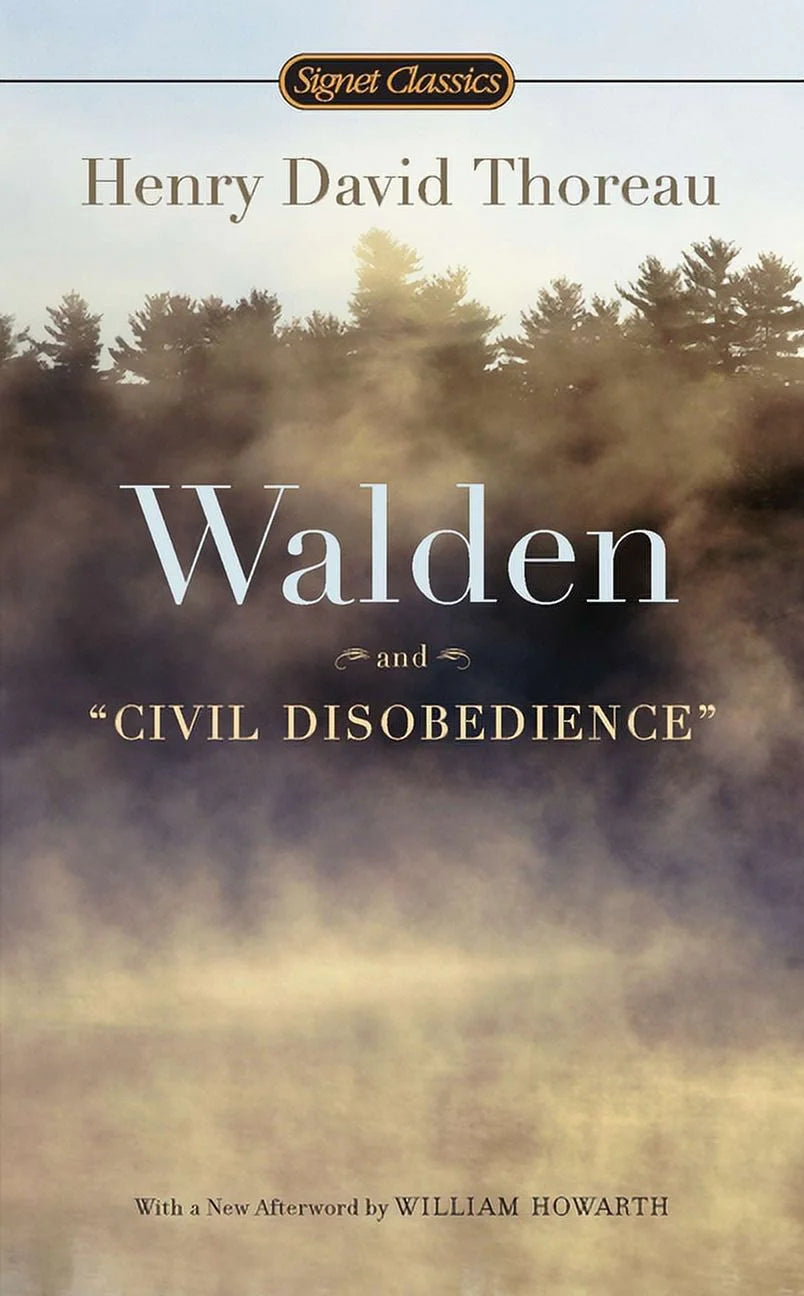Bust-Down Books
Walden and Civil Disobedience by Henry David Thoreau
Walden and Civil Disobedience by Henry David Thoreau
Couldn't load pickup availability
Walden and Civil Disobedience
by Henry David Thoreau
Classic Biographies and Memoirs || Best Books in Biography & Autobiography | Environmentalists & Naturalists | Nature | Ecosystems & Habitats | Lakes, Ponds & Swamps | Philosophy | Movements | Transcendentalism
Walden and Civil Disobedience are two of Henry David Thoreau's most famous works, both exploring themes of individual conscience, self-reliance, and the relationship between the individual and society. Walden is a detailed account of Thoreau's two years spent living in a cabin in the woods near Walden Pond, where he sought to live a simple life in harmony with nature.
The book is a meditation on the importance of simplicity, self-sufficiency, and the value of living in accordance with one's own principles. Civil Disobedience is an essay that argues for the right of individuals to disobey unjust laws. Thoreau's essay was inspired by his own refusal to pay a poll tax in protest against slavery and the Mexican-American War.
These works have had a lasting impact on world society and culture because they challenged conventional thinking about the role of the individual in society. Thoreau's ideas about self-reliance, nonviolent resistance, and the importance of living in accordance with one's conscience have inspired generations of activists, writers, and thinkers.
His writings have been cited as influences by figures such as Mahatma Gandhi, Martin Luther King Jr., and Nelson Mandela, who all used Thoreau's ideas to advocate for social change. Walden and Civil Disobedience continue to be relevant today because they address timeless issues of individual freedom, social justice, and the relationship between the individual and the state.
Thoreau's writings offer a powerful critique of consumerism, materialism, and the tendency of governments to infringe on individual liberties. His ideas about living simply, resisting unjust laws, and following one's conscience remain as relevant today as they were in the 19th century.
Share

